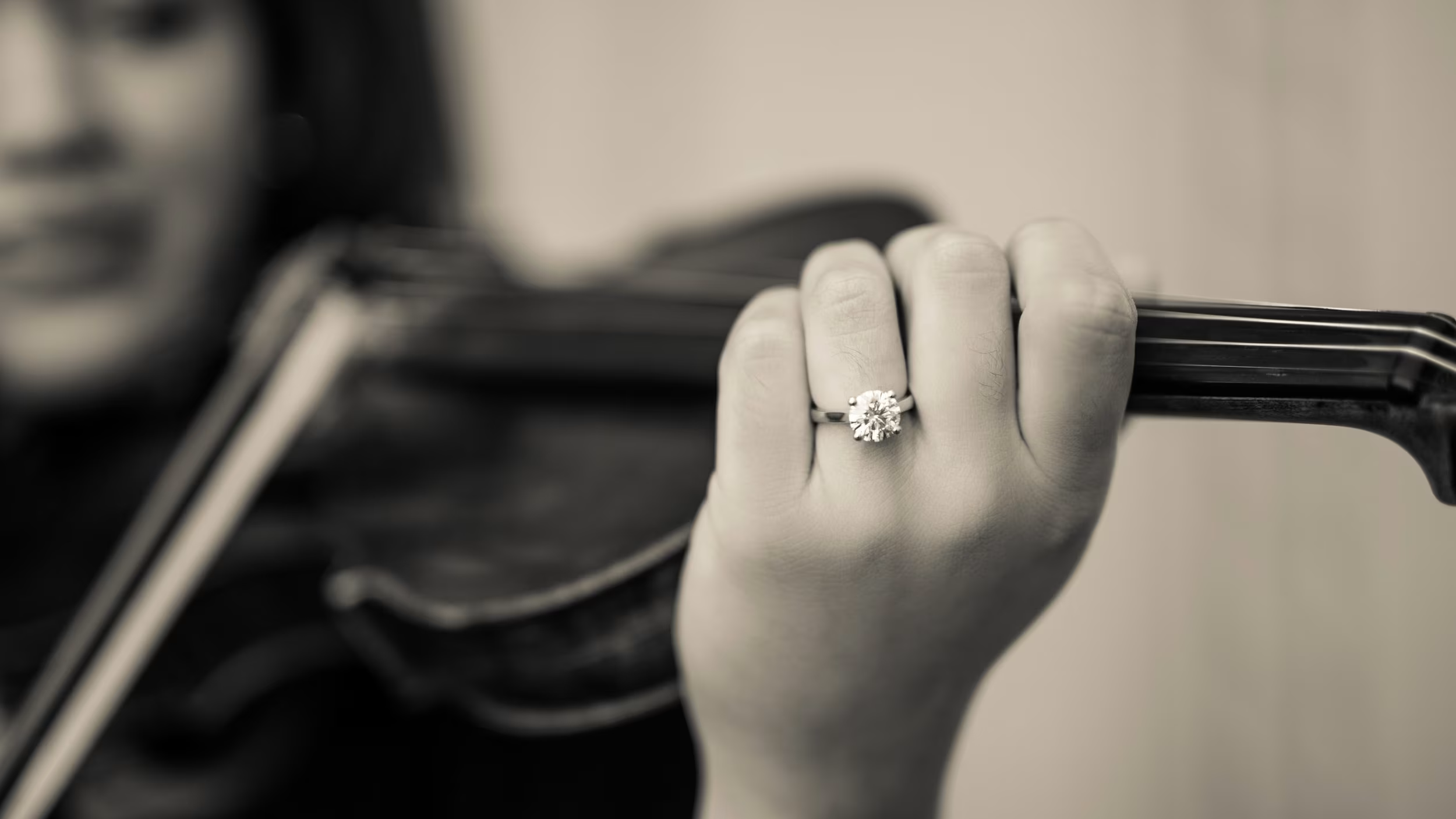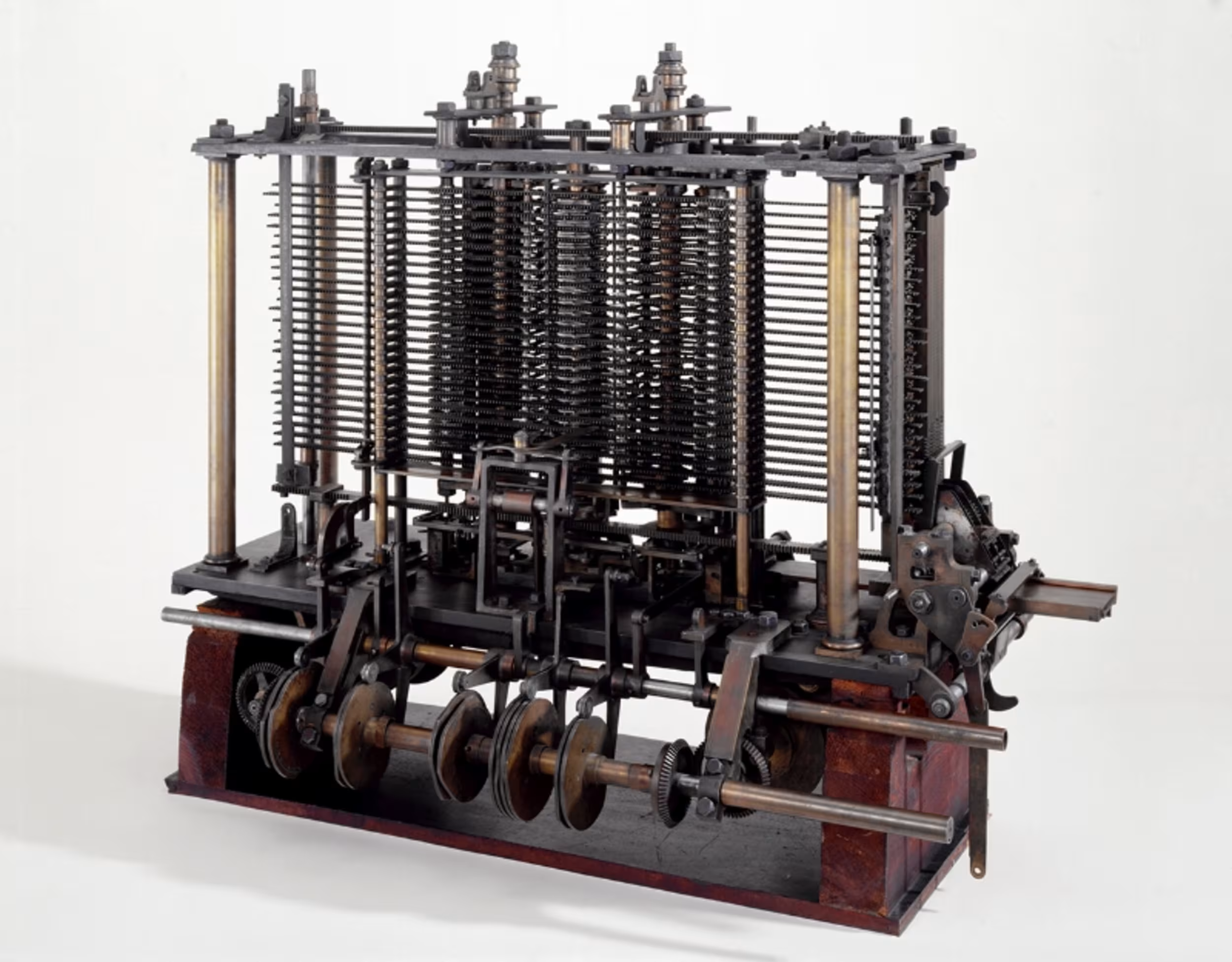
The Life of Ada Lovelace
Ada Diamonds is named in honor of August Ada King, Countess of Lovelace, an audacious and brilliant 19th century mathematician, mother, musician, socialite, and computer scientist who was affectionately known as the Enchantress of Numbers. Lady Lovelace was a preeminent scholar in London, who regularly collaborated with and challenged other luminaries such at Charles Babbage, Michael Faraday, Charles Dickens, and Charles Darwin. She is widely credited as the world's first computer programmer for her work to calculate Fibonacci Numbers on Babbage's Analytical Engine.

In Babbage's computer, Ada saw the future. She saw the potential to not only improve mathematics and manufacturing, but to also create art, music, and advanced symbolic logic. In her letters, Ada wrote that "we may say most aptly that the Analytical Engine weaves algebraic patterns just as the Jacquard-loom weaves flowers and leaves” and that it “holds a position wholly its own ... A new, a vast, and a powerful language is developed for the future”. She later envisioned the ability to generate beautiful art with the computer: “Supposing, for instance, that the fundamental relations of pitched sounds in the science of harmony and of musical composition were susceptible of such expression and adaptations, the Engine might compose elaborate and scientific pieces of music of any degree of complexity or extent.”
The Enchantress of Numbers. The World's First Computer Programmer.
In a letter to Faraday, Babbage praised Ada as "that Enchantress who has thrown her magical spell around the most abstract of Sciences and has grasped it with a force that few masculine intellects (in our own country at least) could have exerted over it." In other correspondence, a male colleague praised Ada for "her mathematical powers, and of her peculiar capability—higher he said than of anyone he knew, to prepare the descriptions connected with his calculating machine.”
Daughter of a mathematician and a poet, the Honourable Augusta Ada Byron was born in 1815, in London. In 1835, she married William, 8th Baron King, and became Lady Ada King. In 1838, King became the 1st Earl of Lovelace and Ada became The Right Honourable The Countess of Lovelace. She signed herself “Augusta Ada Lovelace” or “AAL”, and now we just call her Ada Lovelace. She had three children with William: Byron, Anne Isabella, and Ralph Gordon. Tragically, she died in 1852, at 36 years old, due to uterine cancer and complications arising from bloodletting by her physicians.
Ada Diamonds is honored to have such a powerful scholar, mother, and visionary as our namesake. Her vision of "poetic science" inspires us to create pure science, pure diamonds, and pure poetry every day. We are proud to support initiatives in her honor to advance computing and women in STEM such as the Lovelace Medal and Ada Lovelace Day as part of our Sixth Element Program. Read more about Lady Ada Lovelace.